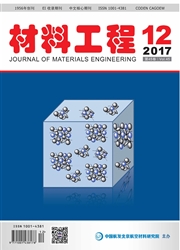

 中文摘要:
中文摘要:
综述了碳点的制备、发光原理以及应用的研究进展,重点介绍了碳点制备方法,讨论了自上而下法中电弧放电、激光消融和电化学氧化法以及自下而上法中燃烧法、模板法、水热法及热解法等制备碳点的优缺点、荧光量子产率以及研究趋势;指出未来研究中,需进一步优化碳点合成及修饰方法,深入探究碳点发光机理,提高碳点荧光量子产率;而制备能精确、灵敏、快速且易于检测荧光信号的碳点是其在应用中为各种化学检测及分析提供新技术和新方法的关键.
 英文摘要:
英文摘要:
The preparation methods, luminescence mechanism and application research progress of carbon dots (CDs) were summarized. Approaches for synthesizing CDs were emphasized, and can be generally classified into two main ways: bottom-up and top-down methods. Top-down methods include arc discharge, laser ablation and electrochemical oxidation methods and others, and bottom-up approaches consist of combustion routes, template synthesis methods, hydrothermal methods, thermal methods and others. The advantages and disadvantages of these methods and fluorescent quantum yield were evaluated, and the research trend of these methods was prospected. It is pointed out that the synthetic/modified methods of CDs and the luminescence mechanism need to be further studied to improve the quantum yield in the future research, and it is crucial to synthetic CDs with the fluorescent which can be precisely, sensitively, rapidly and easily detected in the application of CDs as a new technique and a new method in all kinds of chemical detections and analysis.
 同期刊论文项目
同期刊论文项目
 同项目期刊论文
同项目期刊论文
 Au/graphene hydrogel: synthesis, characterization and its use for catalytic reduction of 4-nitrophen
Au/graphene hydrogel: synthesis, characterization and its use for catalytic reduction of 4-nitrophen 期刊信息
期刊信息
